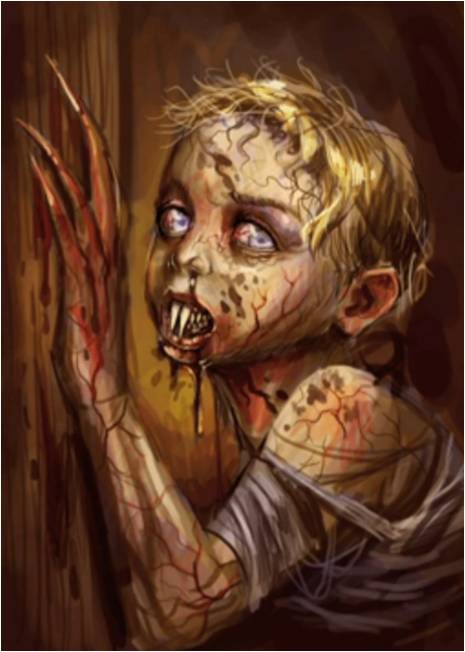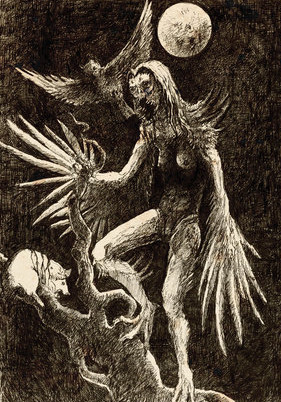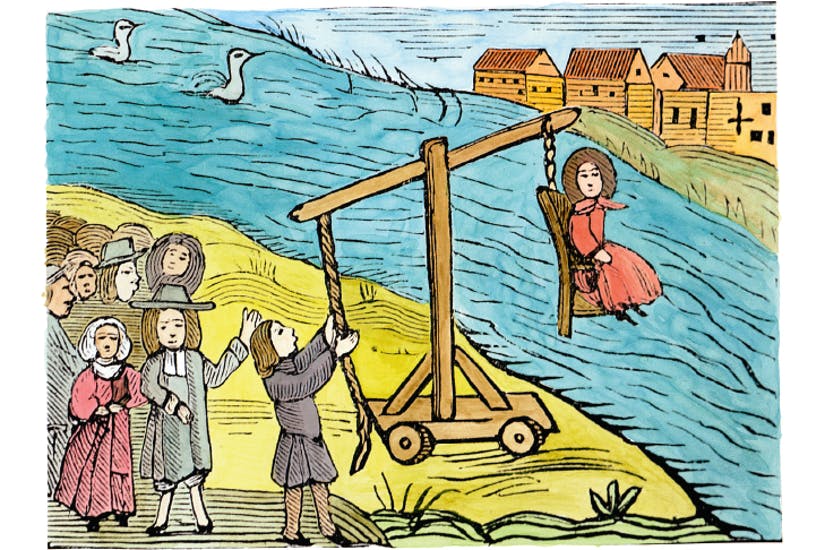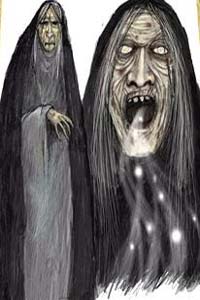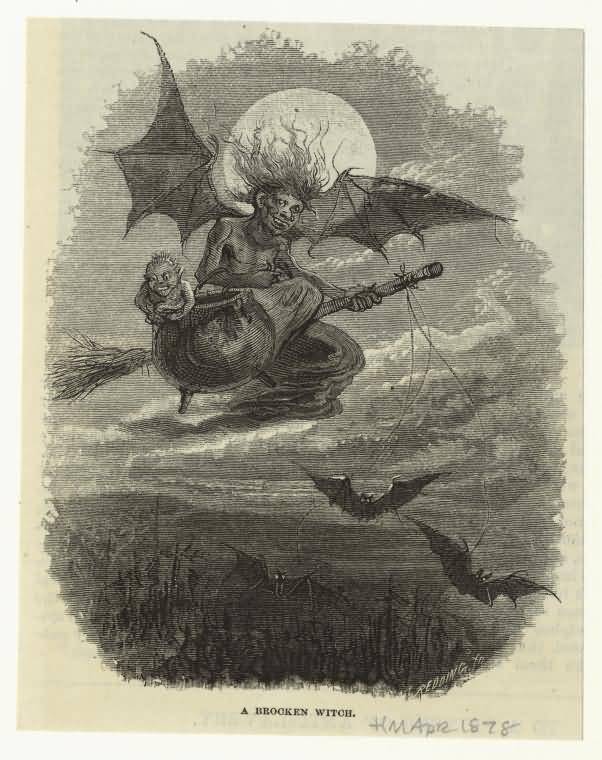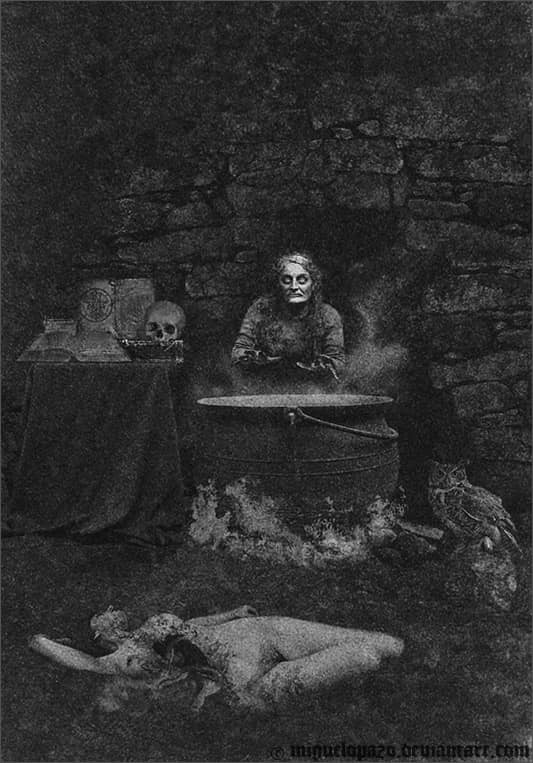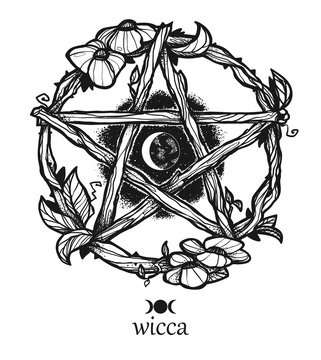Witches
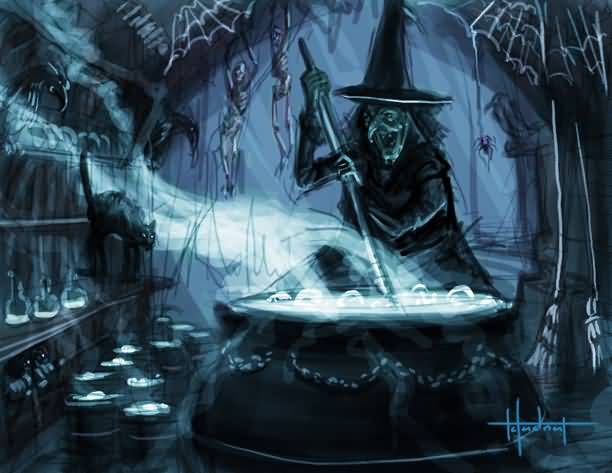
Witchcraft is the practice of what the practitioner ("witch") believes to be supernatural skills and abilities, such as the casting of spells and the performance of magical rituals. Historically, witches have been commonly blamed to use supernatural means to cause harm such as the death of a child, bad harvests, or the death of cattle ... . But witchcraft is not necessarily sorcery and can be beneficial and often refer nowadays to benign, positive, or neutral metaphysical practices, such as divination, meditation, or self-help techniques found in the modern Pagan and New Age movements.
Kudlak
In Croatian and Slovenian lore on the peninsula of Istria, a person born with a caul (embryonic membrane still attached to the top of the head, forming a veil) was destined to become either a kudlak or a krenik. According to one account, a person born with a red or dark caul became a kudlak … Read more
Strige
In an old text written in Latin, Descriptio Antiqui et Hodierni Statue Moldavie translated into Romanian and published in Bucharest in 1973, it is said that people in the Romanian regions of Moldavia and Transylvania believed in the strige (plural: strigele), a witch who killed infants in their cradles. Like the witches of Western Europe … Read more
Vjestitza
The vjestitza (plural: vjeshtitze; pronounced as “vyeshtitza” and sometimes spelled as vestizsa) is a female witch in the lore of Montenegro and Serbia, whose main prey was infants but were also sometimes blamed for adult illnesses. The vjestititza is typically an old woman whose soul leaves her body at night when she goes to sleep. … Read more
Shtriga
In Albania, the shtriga is a female witch whose special prey is infants. At least as late as the early twentieth century, the shtriga was blamed for otherwise unexplained infant deaths as well as adult’s death but to a lesser extent. At night, she often sought her prey in the form of an insect such … Read more
Strega
In Italian language, strega literally means “witch” and in Italy during the middle ages it was believed that the strega transformed into a bird at night to prey upon infants by drinking their blood. What we know today about ancient Roman belief about the stryx (plural: striges) is from what Ovid wrote in his book … Read more
Maleficia
Since antiquity it has been thought witches, sorcerers and magicians could possess the ability to cast negative spells out of revenge, spite or malice. During the medieval witch-hunting mania maleficia, which implied a pact with the Devil, was generally used to explain any natural disaster, accident, illness, or personal misfortune. Also it was believed witches … Read more
Wiccan
A wiccan is a follower of the Neo-Pagan nature-based modern Wicca. In Old English wicca meant “A wizard, soothsayer, sorcerer, magician”. The word has long been out of use. Its modern English descendant is the word witch. Other disputed derivations are from the Old English roots wic, ‘to bend’, or wit, ‘wisdom’. Modern wicca is … Read more


